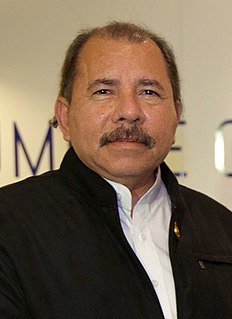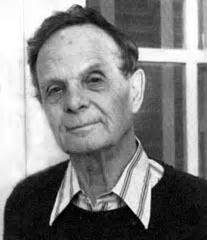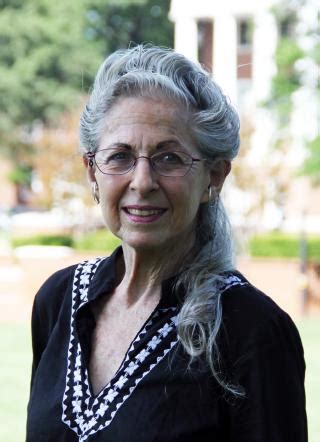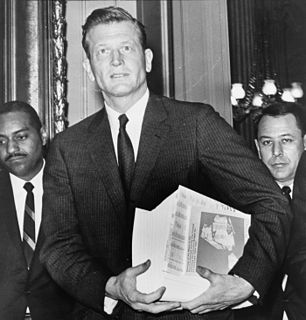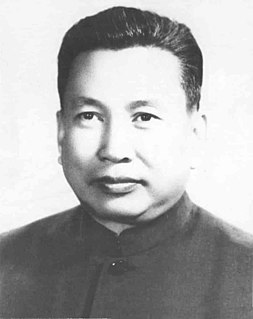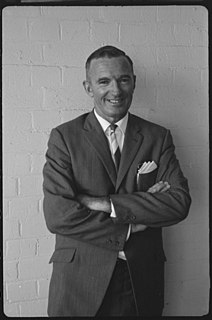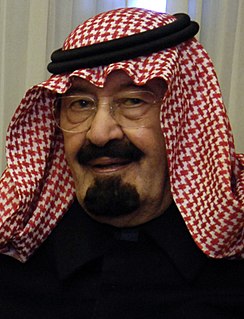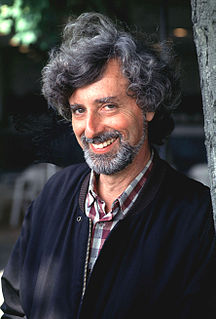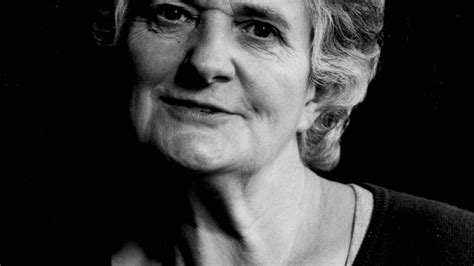Top 328 Repression Quotes & Sayings - Page 5
Explore popular Repression quotes.
Last updated on April 20, 2025.
By very conservative estimates, Turkish repression of Kurds in the 1990s falls in the category of Kosovo. It peaked in the early 1990s; one index is the flight of more than a million Kurds from the countryside to the unofficial Kurdish capital, Diyarbakir, from 1990 to 1994, as the Turkish army was devastating the countryside.
...the workers aren't going to stop struggling. They're going to struggle to have a union and they have the right to have it. The police repression and the grower indifference to the workers' demands for recognition cannot go unheard so we're going to keep on struggling until we get that recognition.
The abused child goes on living within those who have survived such torture, a torture that ended with total repression. They live with the darkness of fear, oppression, and threats. When all its attempts to move the adult to heed its story have failed, it resorts to the language of symptoms to make itself heard. Enter addiction, psychosis, criminality.
In the late 1990s, some of the worst terrorist atrocities in the world were what the Turkish government itself called state terror, namely massive atrocities, 80 percent of the arms coming from the United States, millions of refugees, tens of thousands of people killed, hideous repression, that's international terror, and we can go on and on.
One has to bear in mind that during my childhood and adolescence, I suffered the repression of the Somoza dictatorship in every way: economically, socially, as well as at the hands of the police -- because if we went out on the street to play baseball, for example, the police would come and beat us up and put us in prison.
Out of the house and on my own, I faced the fact I didn't much like who I was. I didn't like my judgmentalism; I didn't like my absolutism. I didn't like my repression of natural empathy, my pinched lack of emotional generosity. How I had been thinking politically had less to do with what was wrong with the world and more to do with what was wrong with me, with my fears and insecurities, failings, weaknesses.
The organism is thus being preconditioned for the spontaneous acceptance of what is offered. Inasmuch as the greater liberty involves a contraction rather than extension and development of instinctual needs, it works for rather than against the status quo of general repression - one might speak of "institutionalized desublimation". The latter appears to be a vital factor in the making of the authoritarian personality of our time.
Sadly, the same leaders who call on Palestinians to abandon violence have been silent in the face of Israeli repression. By condemning violent Palestinian resistance while remaining silent in the face of Israeli crackdowns and political arrests, they are simply endorsing violence against civilians by one side instead of the other.
The witch-hunt was a perverse manifestation of the panic which set in among all classes when the balance began to turn toward greater individual freedom. The witch-hunt was not, however, a mere repression. It was also, and as importantly, a long overdue opportunity for everyone so inclined to express publicly his guilt and sins, under the cover of accusations against the victims.
I don't know whether the movement crashed as a result of the overwhelming character of the institutions we set out to change. I think repression had a lot to do with the dismantling of the movement and also the winning of certain victories had something to do with the inability of the movement to take those victories as the launching point for new goals and developing new strategies.
Surely a large part of the zealous repression of radical protest in America has its roots in the fact that millions of men who are apparently "insiders" know how vulnerable the system is because they know how ambiguous their own attachments to it are. The slightest challenge exposes the fragile foundations of legitimacy of the state.
I am looking to have a place under the sun for our new generations to live in peace far away from repression, from terrorism, to live as human beings freely in this free world. That is what I am looking for. I am not asking for the moon. I am asking for the United Nations legality to be implemented.
I think art is the only political power, the only revolutionary power, the only evolutionary power, the only power to free humankind form all repression. I say not that art has already realized this, on the contrary, and because it has not, it has to be developed as a weapon, at first there are radical levels, then you can speak about special details.
Repression is good for cultural achievement. Let's face it. What are gay boys going to be like? I always like to say the 19th-century gay boy was Oscar Wilde, the 20th-century gay boy was Stonewall and ACT UP. And in the 21st century, we have blocking people on Grindr. That's what we've accomplished. Without some kind of traction.
That's part of what I touch on in my [UN] speech - when assaults happen on women and girls in these fragile countries, in these places of crisis, there isn't the psychosocial support. There aren't counseling services. It's not in a lot of cultures to explicitly talk about things that maybe have happened to the body. So, repression of emotion, and shame, and guilt is something that really needs to be handled in humanitarian crises.
Mexico just needs more journalists, and especially more good places to publish and exhibit. There are all kinds of censorship practiced in Mexico, not just violent repression. Perhaps the biggest threat to good journalism here is the massive power of the country's media monoliths - Televisa and TV Azteca - who have 80% of the market. They endlessly saturate the country with propaganda and inanity.
The Arabs could have peace tomorrow if sufficient numbers of Palestinians were not content to be used as cannon fodder in fruitless assaults on Israel, even as the surrounding Arab powers distract the Arab masses with the red herring of Israel while retarding their countries with their repression and corruption.
What other developed democracy has such a ridiculous and squalid history of intolerance? From the imprisonment and roasting of heretics, witches and poachers, to the censorship of literature, art and television: from St Alban through Wilde, Joyce and Lawrence I think we can point with pride to as grim a catalogue of intemperate, bigoted repression as any nation on earth.
The biggest lie in the world is in answer to the question, 'How are you?' People usually say, 'I'm fine,' but that's mostly bull. Everyone wants to display being perfect. They tell themselves and their friends, 'I drive this car, I own this house, I'm fine.' People ball up into these tight wads of repression.
He [Wilhelm Reich] believed that the individual's walk, stance, and breath patterns revealed a specific character type. Reich thought chronic muscular tension indicated repression and blocked the expression of affect. An example is the tight holding of the chest area as a sign of repressed feelings of need and longing.
Well, Nigeria has played a constructive role in peacekeeping in various parts of West Africa. But unless and until Nigeria itself is democratic and respects human rights, it too may well be a source of much greater instability as political repression limits the ability of the people of Nigeria to achieve their full potential.
Just wearing the corset means that you can never really relax from the moment that you put it on. So, there's a constant sort of strain and you have to hold yourself in a certain way. It's very uncomfortable. But again you instantly understand the repression that women feel and how much they were captives. It's sort of sad really.
Obviously people's feelings are going to get hurt when you use certain words, but you can't outlaw words. They're really the history of our culture. They tell you what's going on. When you make words politically incorrect you're taking all the poetry out of the language. I'm pro anybody living their lives the way they want to live, sexually and otherwise; and I'm anti any kind of language repression.
Our subliminal mental processes operate outside awareness because they arise in these portions of our mind that are inaccessible to our conscious self; their inaccessibility is due to the architecture of the brain rather than because they have been subject to Freudian motivational forces like repression.
We see political leaders replacing moral imperatives with a Southern strategy. We have seen all too clearly that there are men-now in power in this country-who do not respect dissent, who cannot cope with turmoil, and who believe that the people of America are ready to support repression as long as it is done with a quiet voice and a business suit. And it is up to us to prove that they are wrong.
Failing to induce adulation and submissiveness, the Angkar could only generate hatred. If concealment was the ultimate ploy for the leadership, it backfired and whipped up abhorrence in the
context of total revolution. This might be one of the explanations why repression assumed proportions unknown in other Communist countries. The mask of Angkar was a good tactic to grab
power, but it proved disastrous in government.
The pedagogy of authoritarianism is alive and well in the United States, and its repression of public memory takes place not only through the screen culture and institutional apparatuses of conformity, but is also reproduced through a culture of fear and a carceral state that imprisons more people than any other country in the world.
The truth is impossible to comprehend even when one is willing to tell it. For the truth resides in memory and memory is clouded with repression and a desire to embellish. The recollections of any individual are conditioned by the general truths to which he or she has tried to live. To recall an event is to interpret it, so the truth is altered by the very act of remembering. Therefore the truth, like God, does not exist - only the search for it.
It is not true that evil, destructiveness , and perversion inevitably form part of human existence, no matter how often this is maintained. But it is true that we are daily producing more evil and, with it, an ocean of suffering for millions that is absolutely avoidable. When one day the ignorance arising from childhood repression is eliminated and humanity has awakened, an end can be put to this production of evil.
Every night I get many letters, and after every talk I get many questions from people who say, "I want to change things. What can I do?" I never hear these questions from peasants in southern Colombia or Kurds in southeastern Turkey under miserable repression or anybody who is suffering. They don't ask what they can do; they tell you what they're doing.
Ebola haunted Zaire because of corruption and political repression. The virus had no secret powers, nor was it unusually contagious. For centuries Ebola had lurked in the jungles of central Africa. Its emergence into human populations required the special assistance of humanity's greatest vices : greed, corruption, arrogance, tyranny, and callousness.
What makes power hold good, what makes it accepted, is simply the fact that it doesn't only weigh on us as a force that says no, but that it traverses and produces things, it induces pleasure, forms knowledge, produces discourse. It needs to be considered as a productive network which runs through the whole social body, much more than as a negative instance whose function is repression
The economic class struggle is a struggle against inessanlty intensified exploitation: not only against the brutal material form of exploitation, capitalism's tendency to reduce wages, and against the class 'techniques' for increasing productivity... but also around the question of the technical-social division of labor that prevails om enterprises, and against bourgeois ideology and repression.
I think our society is fragmented. Messages regarding human sexuality have always been mixed in America. We are a schizophrenic nation. We were founded initially by Puritans, who escaped repression only to establish their own. Then the founding fathers gave us the Constitution to separate church and state. But the one thing that got left out of all those laws was human sexuality.
I will not tire of declaring that if we really want an effective end to violence we must remove the violence that lies at the root of all violence: structural violence, social injustice, exclusion of citizens from the management of the country, repression. All this is what constitutes the primal cause, from which the rest flows naturally.
The education business is a little murky because by 1900, it has been pretty well decided that a certain amount of education was required to make the system of repression work. You had to have people who showed up punctually. You had to have people who took their orders obediently and understand them fully.
Anger is generally seen as an unwelcome presence in our midst, however natural it may be. Although each person, and each society, is charged with how anger is to be appropriately channeled, the denial of anger, or its continuous repression, is a deep source of our psychopathology and will invariably seek its expression in a less healthful fashion.
I believe America is the most powerful country in the world and is a country that stands on principle. Its principles are enshrined in its very foundation and constitution, and it has a duty to serve humanity. America has a duty to follow its conscience to reject repression. It must reject oppression. It must reject humiliation.
Every teenager deals in his or her own sexuality and has to face it and figure out how it can coincide with the rest of their lives in a healthy manner. And try to navigate it in our modern society, which is wrought with stigma and taboo and repression, and sort of as a result, these inner monsters that some teenagers really struggle with.
So, I think that for the authorities to say now that calling for sanctions will prevent dialogue is a ploy to stop us from supporting sanctions. It has to be the other way around: dialogue first, then we stop our call for sanctions, because sanctions make people understand that you cannot exercise repression and at the same time expect international support.
Denied anything ardently desired, the individual or state will argue and parley just so long - then, if the impelling motive be sufficiently great, will cast aside every rule and break down every acquired inhibition, plunging viciously after the object wished; all the more fantastically savage because of previous repression.
The most obvious inspiration to be brave is that we all feel it: you can't have free expression right now in a very wide range of countries. It takes a lot of guts for writers and journalists in those countries to stand up against repression and do what they do. Russia is a case in point where, as you know, journalists have an embarrassing habit of being killed for their reporting.
On the level of investigative results, John Boswell's methodology has led to the discovery that what has been called the repression of homosexuality does not date back to Christianity properly speaking, but developed within the Christian era at a much later date. In this type of analysis it is important to be aware of the way in which people conceived of their own sexuality.
British rule depends upon repression and collaboration and the Irish people should recognise that those who collaborate with Britain in exchange for a slice of the cake will implement British policy and remain silent when Irish people are murdered and oppressed. It is they who are responsible for prolonging the war in Ireland. Without the quislings, without the collaborators, we would already have reached freedom.
The film [the white Ribbon] does try to use German Fascism as an example, but not specifically Fascism... the results of German Fascism. It shows how people are prepared or indoctrinated for an ideology... people who are already in a state of repression who have been humiliated by society and who clasp at a straw that's offered to them. And how that's then developed into a form of indoctrination.
We've learned a lot from the great psychologists. Wilhelm Reich wrote about the relationship between fascism and sexual repression. Freud rediscovered the underworld of consciousness that European rationalism had denied. But when you have a nation of people in therapy and counselling, "support" groups for every kind of human condition, where, in the clichés of that milieu, people "share" and "heal," the question, "What for?", "What now?" is no longer asked.





